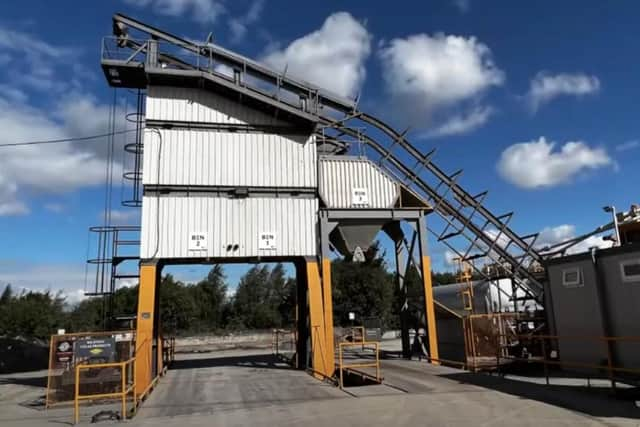Asphalt plant near Yorkshire village blocked amid fears for health and tourism
East Riding Council’s Planning Committee voted to refuse plans for the asphalt plant, in Catfoss Lane, Brandesburton, on Thursday (August 17). Newlay Asphalt’s Jamie Brown told councillors they had moved the proposed site further away from the village after earlier plans were blocked amid concerns of its effect on the area.
But Jackie Suthenwood, who lives in Brandesburton, said people there felt their worries about the possible dangers posed by emissions from the plant had been dismissed. The committee’s decision came after 347 people objected to the plans, including East Yorkshire MP Greg Knight. Other objectors included the local Community Rejects Asphalt Plant group, the Campaign to Protect Rural England and Brandesburton Parish Council.
Advertisement
Hide AdAdvertisement
Hide AdTheir hearing at the committee followed the refusal of previous plans for the plant in August last year. It came after 476 people including a local doctor objected over its location close to homes and a school.


Sir Greg said that despite moving the plant around half a mile further away from Brandesburton to an industrial estate, it could see locals exposed to noise and dust. The MP added emissions from the site could also damage farming and the local tourism industry. But council officers recommended approval of the plans and assessments on the possible effects on noise and air quality concluded they would be negligible.
Plans would have seen the building of a plant for the coating of road stone with bitumen. It was designed to process up to 100 tonnes of material an hour. The application stated there would be 30 HGVs travelling to and from the site every day, along with 15 smaller lorries. It would have operated from 5am to 4pm, Monday to Friday, until 12pm on Saturdays and it would have been closed on Sundays and bank holidays.
Mrs Suthenwood said the site was mostly made up of light industry and storage and was not suitable for heavy production.
Advertisement
Hide AdAdvertisement
Hide AdMrs Suthenwood said: “There’s already large scale asphalt production in Hull which is connected to major roads. In other places there are growing industrial sites, the location here isn’t appropriate. Large diesel generators will most likely be needed to power the plant. Run off from the site will contaminate the neighbouring watercourse.
“More HGV traffic won’t help tackle climate change and losing jobs in the tourism industry won’t help the local economy. The health risk from toxic chemicals should not be dismissed, the application itself admits there could be fugitive emissions from the site. Concerns about how this will affect traffic on the A165 coastal route have also been dismissed.
“What do you associate with Brandesburton? It’s families, sports and leisure, walking, cycling and horse riding, not this.”
Mr Brown said Newlay Asphalt took the decision to move the proposed site to the industrial estate to help address the concerns about its effect on the area.
Advertisement
Hide AdAdvertisement
Hide AdHe added using recycled materials in the production of asphalt and different mixing methods would cut emissions by 90 per cent compared to standard processes.
He said: “This is an established industrial site, it’s one that has excellent road links to the rest of the East Riding. There’s already several large businesses operating there during the same hours that our plant would. All the assessments on this have concluded that there will be no significant or adverse effects from this.
“The existing asphalt plants don’t have the capacity to meet demand for it in East Yorkshire. This plant would mean a 80 per cent reduction in road miles for us, there would be a huge reduction in carbon emissions. The site will be subject to an environmental permit which requires us to follow strict regulations.”